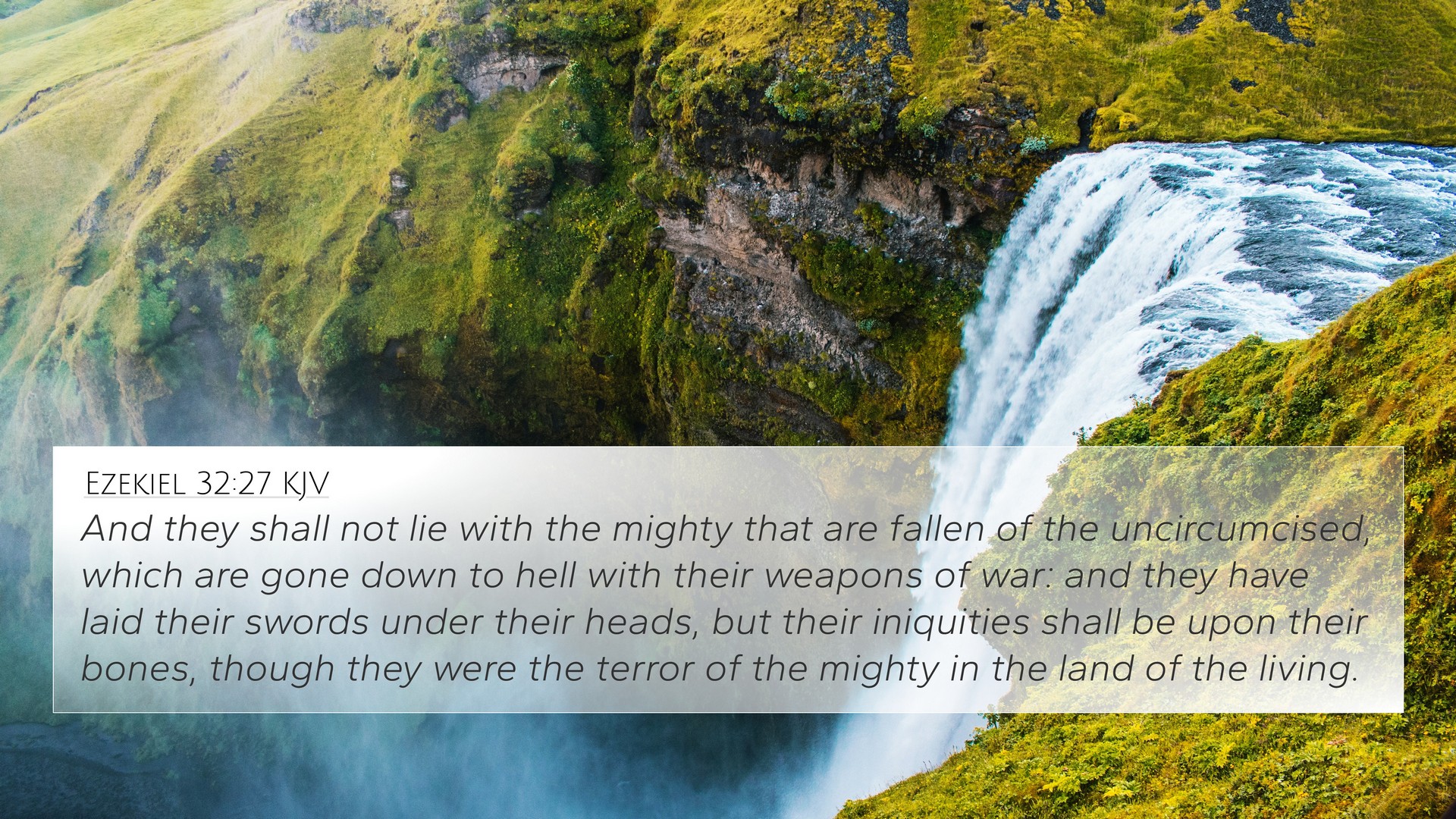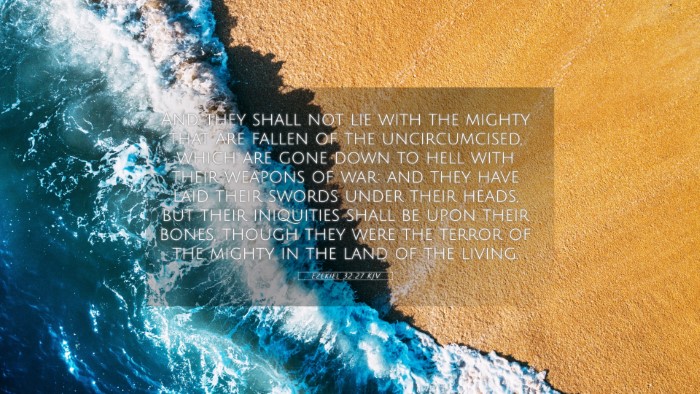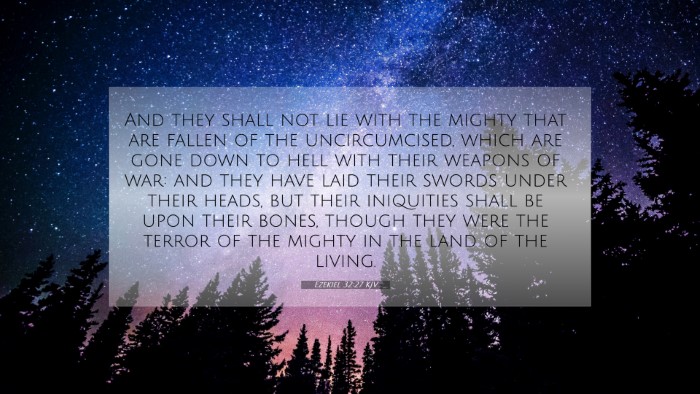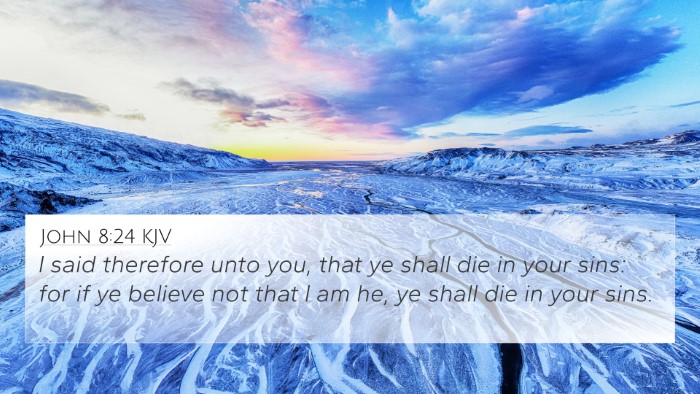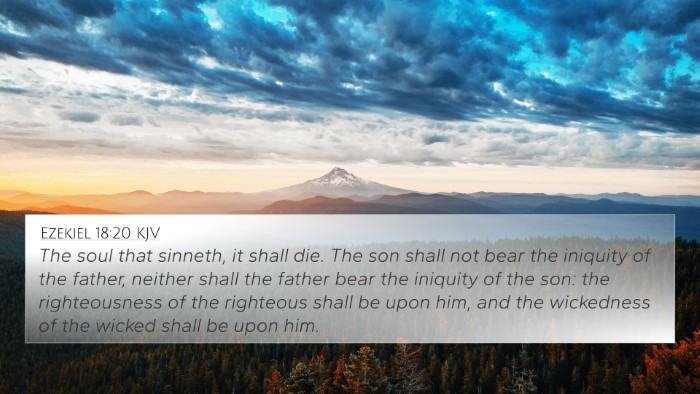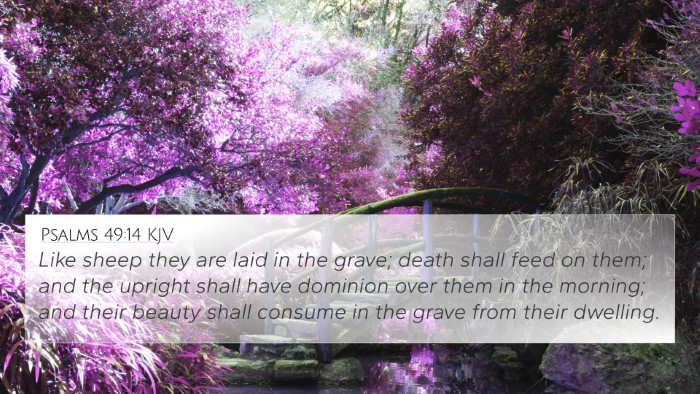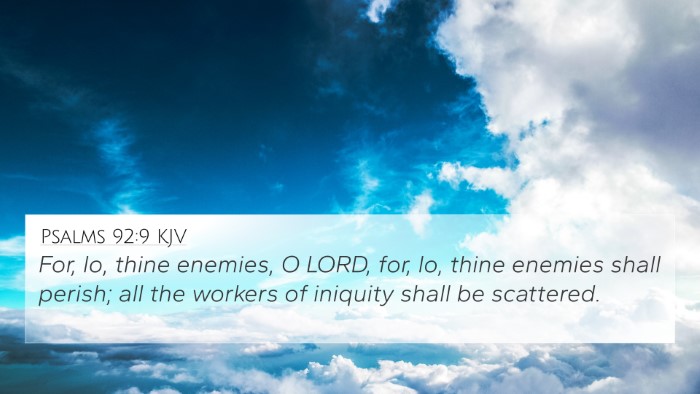Ezekiel 32:27 - Verse Meaning and Interpretation
Ezekiel 32:27 presents a powerful imagery within the context of biblical prophecy concerning judgments on nations. In this verse, the prophet Ezekiel discusses the fate of the fallen leaders of Egypt, highlighting themes of death and the consequences of pride. This analysis combines insights from respected public domain commentaries such as those by Matthew Henry, Albert Barnes, and Adam Clarke to provide a comprehensive understanding.
Verse Text
Ezekiel 32:27: "And they shall not lie with the mighty that are fallen of the uncircumcised, which are gone down to hell with their weapons of war: and they have laid their swords under their heads; but their iniquities shall be upon their bones, though they were the terror of the mighty in the land of the living."
Summary of Insights
The verse serves as a stark reminder of mortality and divine judgment. The uncircumcised refer metaphorically to those outside God's covenant, encapsulating a broader theme found throughout scripture regarding the distinction between God's people and the rest of humanity.
-
Matthew Henry:
Henry reflects on the spiritual implications of the verse, noting how the mighty who fell, despite their power, are nonetheless under judgment. Their fate serves as an example of how earthly strength is ultimately meaningless in the divine scheme of justice.
-
Albert Barnes:
Barnes emphasizes the connection between the actions of the mighty and their end. He interprets the mention of weapons, signifying their attempts to assert dominance, and notes that despite their might, they face the inevitable consequence of their iniquities. Their downfall is an affirmation of God's sovereignty over nations.
-
Adam Clarke:
Clarke gives a contextual view, linking the passage to Egypt’s eventual collapse and the judgment of other nations. He delves into the Hebrew text’s nuances, reinforcing the inevitability of decay that follows sin and pride in leadership.
Connections to Other Bible Verses
Various biblical texts resonate with the themes presented in Ezekiel 32:27. Here are notable cross-references that illustrate similar motifs of divine judgment, mortality, and the downfall of the proud:
- Isaiah 14:9-11: This passage discusses the fall of Lucifer and his arrogant intent, mirroring the message of judgment against the proud.
- Jeremiah 51:57: Highlights the punishment of Babylon and its leaders, again touching on the notion of iniquity leading to destruction.
- Revelation 20:14: The lake of fire is the final judgment where death and hell are cast, connecting the end of all evil and the ultimate destiny of the wicked.
- Psalms 37:20: Illustrates the fate of the wicked contrasted with the righteous, reinforcing the theme of divine retribution.
- Proverbs 16:18: Pride is mentioned as a precursor to destruction, aligning closely with the fate depicted in Ezekiel.
- Matthew 25:41: This verse speaks of eternal judgment for those outside of God’s grace, akin to the uncircumcised in Ezekiel.
- Isaiah 66:24: Describes the fate of the rebellious and unrepentant, which complements the warnings presented in Ezekiel.
- Luke 16:23-24: The story of the rich man and Lazarus highlights the eternal consequence of life choices, reminiscent of the mighty who face judgment.
- Romans 1:32: Speaking of those who know God's decree and yet continue in sin, showing the decline of those unrepentant in their ways.
- Philippians 2:10-11: Explaining that all knees will bow to Jesus, giving emphasis to the ultimate authority of God over all, including the mighty.
Conclusion
In summarizing Ezekiel 32:27, one encounters a profound message about the limitations of human power in the face of divine authority. The combination of insights from various commentaries sheds light on the spiritual realities woven throughout scripture, while cross-referencing biblical texts reveals a complex tapestry of themes surrounding judgment, mortality, and the consequences of pride. Engaging with these verses not only enhances understanding but also encourages reflection on one's own standing before God. As believers explore these connections through tools for Bible cross-referencing and study methods, they unlock deeper meanings and applications in their faith journeys.
